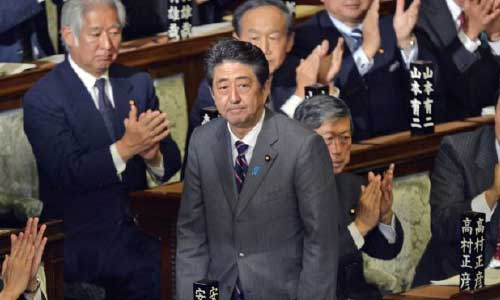TOKYO - Shinzo Abe, the man who promised to restore Japan's dignity and revive its economy with his signature policy of "Abenomics", has resigned after nearly eight years as prime minister, blaming his health.
Abe, who will turn 66 next months, has suffered from ulcerative colitis since he was a teenager. The chronic condition is thought to be aggravated by stress.
"I cannot be prime minister if I cannot make the best decisions for the people," he told the media in Tokyo on Friday, following weeks of speculation about the state of his health, and two hospital visits within a week.
"I have decided to step down from my post."
Abe's departure is an echo of his resignation in 2007 when, after less than a year in the job and struggling with the economy, a pensions disaster and political scandal, he suddenly quit, blaming his illness. This time around, he has been under fire over his handling of the coronavirus pandemic, which has further undermined his already fading popularity.
Abe was born in 1954 in Tokyo, according to his official biography, to a family of formidable political pedigree - his father was foreign minister, his grandfather and a great uncle both prime ministers. It was to his father's old seat that Abe was first elected to Parliament in 1993, quickly rising up the ranks of the governing Liberal Democratic Party (LDP) and becoming the country's youngest-ever leader in 2006.
He returned to office, for an unprecedented second term, in 2012.
In a magazine article, Abe argued that his initial failure motivated him to "give everything for Japan". (Aljazeera)
Home » World » Japan’s Abe Leaves Office with Legacy of Longevity, Security
Japan’s Abe Leaves Office with Legacy of Longevity, Security

